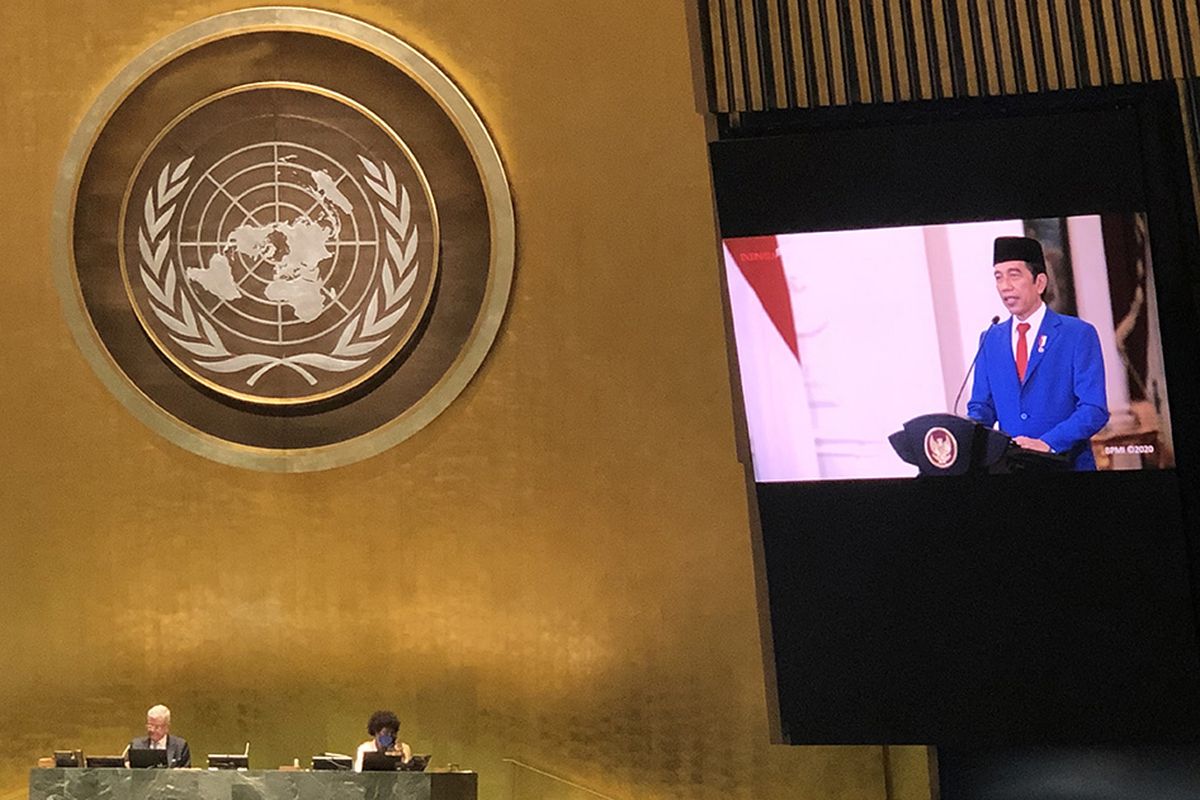Multiple Covid-19 Storylines and Solutions Shared at UN General Assembly

Chinese President Xi Jinping said a handful of vaccines were in Phase 3 of clinical trials and that Beijing would give millions to a UN fund to combat the virus.
Read also: President Jokowi and President Xi Jinping to Bolster Indonesia-China Ties
“1.4 billion Chinese, undaunted by Covid-19, have made all efforts to control the virus,” Xi said, underscoring how China had drastically slowed the spread after the virus was discovered in the Chinese city of Wuhan.
Turkish President Recep Tayyip Erdogan, while lauding his own nation's cooperation and calling for nations to work together, took a swipe at how the UN currently functions.
Earlier this year, Erdogan said, it took months for the Security Council to even discuss the pandemic.
Saeed Khan, director of global studies at Wayne State University in Michigan, said the coronavirus has “become a metaphor for globalism versus nationalism".
“The greatest resistance is coming from regimes that are hypernationalistic,” he said.
To be sure, the pandemic has brought out simmering divisions between nations, providing new things over which to argue.
US President Donald Trump told the assembly that America had “waged a fight against a great enemy, the China virus”, and called on the UN to hold China accountable for the virus and other things.
Trump, campaigning for re-election ahead of November's election, did not mention that on Tuesday the US reached an unwanted milestone — 200,000 coronavirus deaths, by far the largest number of any country in the world — or that polls show a majority of Americans disapprove of his handling of the pandemic.
Read also: Trump Admitted Playing Down Covid-19 Danger in Bob Woodward Recordings
Xi said any “politicizing or stigmatizing should be avoided", that “major countries should act like major countries" and no solutions could be found by burying “one’s head in the sand like an ostrich”, not-so-subtle criticisms of America's response.
Cuban President Miguel Díaz-Canel Bermúdez lamented how much Covid-19 had altered daily life, then argued that US policies, unchecked capitalism, and military spending were the roots of many problems worldwide.
Richard Caplan, a professor of international relations at Oxford University, said that although there were “assaults” on multinationalism around the pandemic, particularly in the form of “vaccine nationalism”, there were also indications that Covid-19 could lead to more cooperation, even among longtime foes.
Caplan noted that earlier this year, Israel and the Palestinian Authority coordinated efforts between health ministries.


































